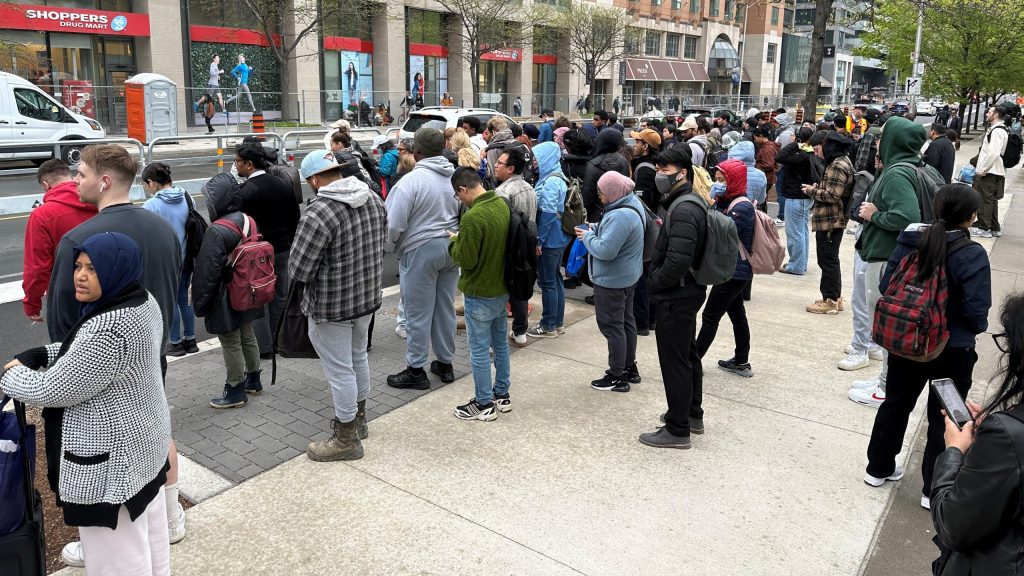Coping with the mental health impacts of the time change
Posted November 5, 2022 6:57 pm.
Last Updated November 5, 2022 7:00 pm.
Daylight savings time ends on Sunday and experts say turning back the clocks can have an impact on mental health.
While most are likely grateful for an extra hour of sleep, any interference with natural sleep rhythm tends to have mental health consequences, explains Amy Deacon, founder of Toronto Wellness Counselling.
Apart from sleep disruptions, she says there are two main reasons the time change is connected to mental health.
“Number one, we know from research that when we’re not exposed to sunlight, we’re more prone to experiencing anxiety and depression,” says Deacon. “The second factor is that in the winter months, our bodies actually produce more melatonin, which results in our feeling more tired, more lethargic, and our bodies produce less serotonin, which is our happy hormone. So all of these things result in our feeling a little bit more tired, drained, and emotionally low.”
Deacon says it’s best to be proactive when it comes to mental health and be prepared for any changes.
“I think it’s really important that people almost take inventory of their current mental health. How’s your bandwidth? How have you been doing the past couple of months, the past couple of years? [Ask yourself] am I feeling burnt out?” she says. “We don’t want to wait for the time change to happen for these symptoms to be exacerbated.”
How to cope with the effects of the time change
Deacon says there are a number of ways to counteract the effects of the season and ensure your mental health remains in the pink.
Make sure you’re getting enough sleep
While it may sound obvious, Deacon says the importance of sleep cannot be overestimated.
“It’s really important to be aiming for about seven to eight hours. Going to bed at a consistent time makes a huge difference,” she says.
She suggests keeping an eye on caffeine intake during the day and alcohol intake at night — both can interfere with the quality of sleep.
“We want to make sure that when we’re waking up, we have energy. We don’t want to wake up feeling lethargic and exhausted again,” she explains.
Deacon says cold, dark days tend to lead to a lack of motivation to eat healthy or exercise, so being well rested is even more important in the cold months.
“Getting a good night’s at rest is not only good for our bodies, but it’s also so good for our brains. We sometimes minimize the benefit of rest and it just eliminating the toxins that we carry.”
Move your body
While exercise has obvious physical benefits, it also has an impact on mental health. Deacon says it doesn’t have to be strenuous to feel the positive results.
“It doesn’t have to be going to the gym and grinding it out,” she says.
A 20 to 30 minute walk to get some fresh air everyday is enough exercise to feel those mental health benefits kick in.
“It’s not about building a six pack of abs. When we’re deliberate and consistent with our exercise, it releases endorphins and those endorphins are so good for buffering our mental and emotional health.”
Try light therapy
Deacon says reduced daylight hours mean it may not be possible to get a daily dose of natural light, but encourages being more deliberate about getting outside when the sun is up.
Alternately, using a light therapy lamp that mimics sunlight can also do the trick.
“The benefit of light therapy is that it can help produce serotonin, which is the hormone that is often depleted in the winter months,” she explains. “A lot of people find that if they do it first thing in the morning, it can help buffer them and just allow them to feel more resilient in those darker, colder months.”
Light therapy lamps have become fairly popular and inexpensive in recent years and Deacon feels it is a worthwhile investment.
Connect with friends
“Often in those colder, darker months, we just want to cocoon at home. But when we’re already predisposed to struggling mentally and emotionally, that isolation can really exacerbate our symptoms,” says Deacon.
She says it is important to be more mindful and deliberate with social relationships during a time when you might be tempted to hibernate.
“We know that relationships, especially ones where we feel seen and heard and we feel matter, the type of relationship that you leave feeling nourished, we need to be deliberate in making time for those,” she says.
Deacons points out that one of the biggest consequences of the pandemic was the isolation due to COVID-19 restrictions and says many have likely gotten used to a lack of social interactions.
“People’s worlds have gotten quite small. As mental health therapists, we really want to encourage people to be proactive in reaching out to friends and families, having things to look forward to. It’s almost a little act of creating light at the end of a dark tunnel,” she says.
Winter blues vs Seasonal Affective Disorder
Deacon points out that it is important to recognize the difference between what’s commonly called the “winter blues” and something more serious that may require additional help — like Seasonal Affective Disorder (SAD).
She says one or two days of feeling low or different from usual could be considered “winter blues.”
“When it comes to Seasonal Affective Disorder, those are symptoms that are present for the better part of about two weeks. And so that’s when people are really struggling,” says Deacon.
Symptoms may include a loss of appetite, difficulty sleeping, difficulty getting out of bed and lack of motivation to enagage in activities that were previously enjoyable.
“When we see people in this situation, we’re really encouraging that they connect with a healthcare professional, whether it’s their doctor or a licensed therapist,” she says.
Deacon stresses that being aware of possible symptoms and taking early steps to mitigate them is key to staying mentally healthy.
“I think sometimes people wait too long to get the help that they need. If in your gut you’re feeling like things aren’t right, reach out and get the support that you need,” she says. “I know that there’s still a little bit of stigma, but connecting with somebody that can help navigate you through those [seasonal changes] is life saving.”










